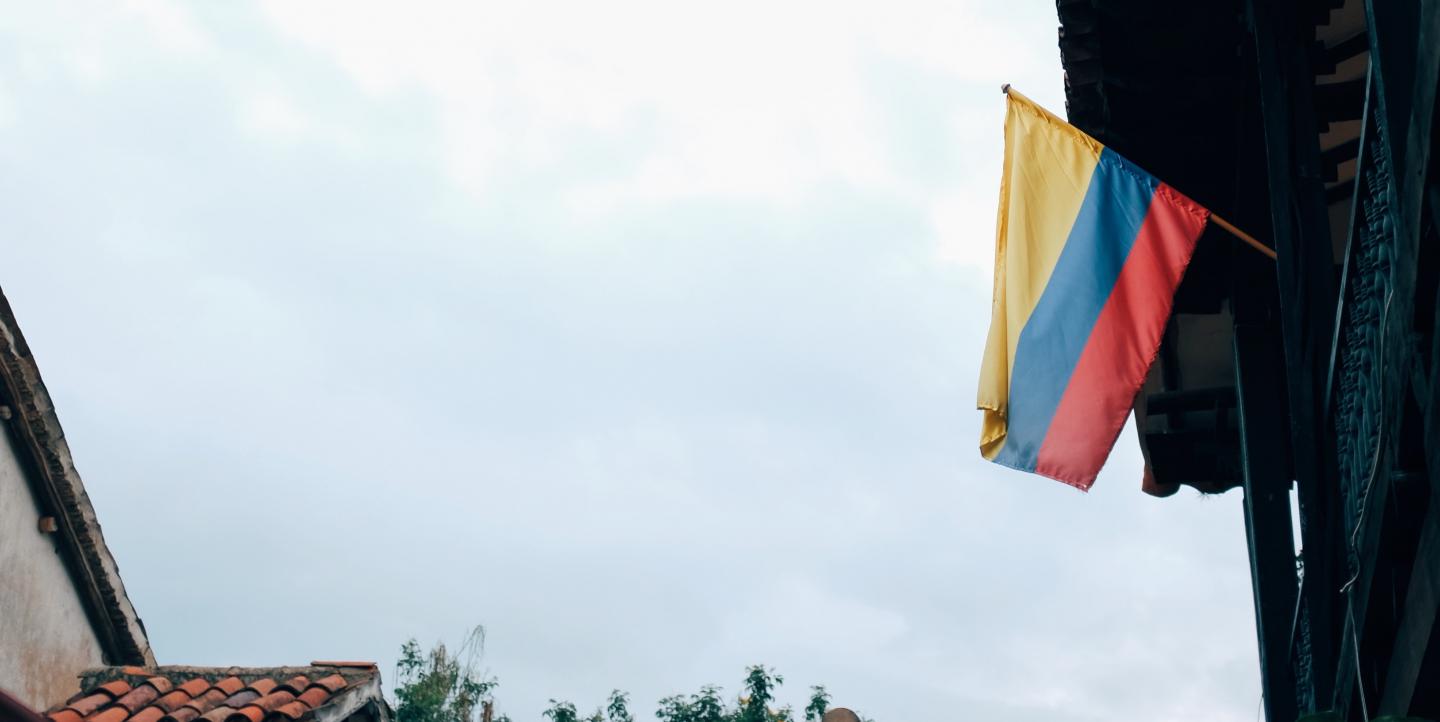In Colombia, a country with a fragmented geography and five distinct natural regions, radio was the first technology to overcome geographical obstacles and connect its citizens. Radio Andaquí, in the municipality of Belen de Los Andaquíes in the department of Caquetá, was established in 1993, bringing with it more than simple news and entertainment.
“From the beginning, we thought of it as a communication project. Radio was just the tool to generate this communication,” said cofounder Alirio Gonzalez. And, in a country accustomed to violence, the station took on the role of protector. “It plays 24/7, but when it's not playing, everyone knows something is going on, and it is best to hide at home. Shutting down happened several times, and we believe it saved lives,” added Gonzalez.
Belen has a population of 11,721, and it is located at the foot of the mountain range and the start of the Amazon Forest. Gonzalez described how they felt an absence of space to tell the stories of Belen by the people of Belen: “We had something to say and traditional media outlets were not at our reach, nor were they interested in hearing our story.” Currently, the average Colombian devotes four hours a day listening to the radio.
[Read more: Colombian journalist Karoll Pineda discusses reporting during COVID-19]
Gonzalez understands success in terms of the community’s involvement, frequently taking the station out of the booth and onto the street. They record parties and school events, and inhabit the whole town. The region, though vast, was underrepresented in media coverage and media outlets before Radio Andaquí showed up. The Colombian Amazon represents 42% of the national territory but has only 54 of the country’s 1,593 stations.
Themes covered by the station are democratic, speaking to every music taste, age, gender, occupation and religion. A daily program for the community council covers and explains legislation, rights and opportunities for resources or grants. But the overall focus — more than three hours per day — concentrates on the community and the environment, including time devoted to ecological and agricultural concerns for both farmers and the general population.
“We didn't need the stories about traffic in Bogotá, nor did we want war and crime to be our daily bread. We were always at war, we wanted to hear our river's stories, children's rights, environmental issues, biodiversity, species and strengths,” said Gonzalez. In terms of funding, all the participants are volunteers, and the radio survives with a monthly income of US$1,167 from five local sponsors and the Colombian Government.
Colombia has lived through a 53-year-old internal conflict with almost nine million victims. The Amazon region had the most significant number of deaths, displacements and threats per number of inhabitants. Belen de Los Andaquíes had all four of the actors of conflict: police, Revolutionary Armed Forces of Colombia (FARC), paramilitaries and the army.
[Read more: "Both sides journalism" in Brazil gives credibility to harmful narratives]
Gonzalez was able to build a radio station with no resources, which was especially when any conflict actor could have targeted it. “Our agenda was not imposed on us by war. The actions of the community build our content. We are accustomed to a war agenda, and we become amplifiers of that war. In Radio Andaquí, we did not allow it,” he explained. “What we do is generate mechanisms that defeat fear. We preferred to do plant-based horoscopes than to talk about deaths.”
The goal, he added, is also to generate peace and exercise trust. “Traditional media outlets take away our confidence and divide us. We want neighbors to talk to each other and relate to each other even if my son is in [the] FARC and the other's son is in the army. We have tighter bonds that the war could not break.”
Colombia is a dangerous country for journalism. In Caquetá, there have been 70 journalists who have been victims of violence since 2006. "I was threatened by the paramilitaries for two or three years and only had their permission to leave my house to go to the station, and nothing else,” said the station's announcer, Blanco Calderón. “We became creative and started using the radio as an escape and a way to mock the war. We gathered the community to make meals and assembled 126 families. While we peeled chickens or collected manure to garden, we spoke of the realities of the war, who was killed, and who survived."
Today, community radio stations are spaces for reconciliation and a way for the distant regions to talk about peace and their reconstruction. As a result, communal radios have a crucial role in strengthening democracy through civic participation.
Laura Pulecio-Duarte is a Colombian economist currently pursuing an MPA in Development Practice at Columbia University.
Main image CC-licensed by Unsplash via Miikka Luotio.

